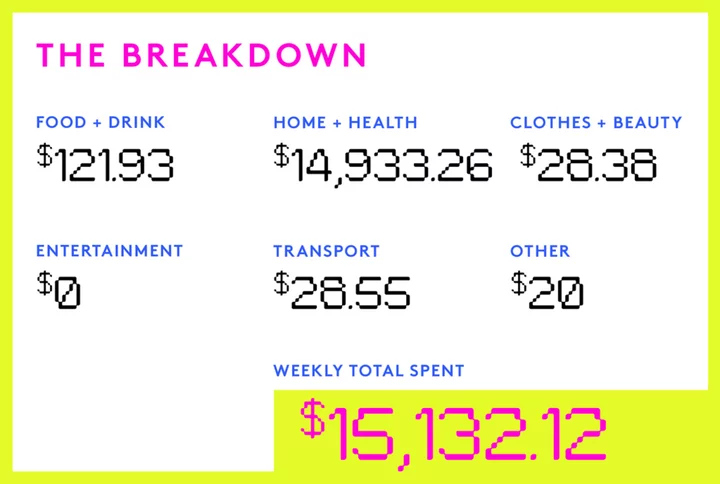Our sex lives can be a complex, wonderful part of our identities, but they can also bring anxiety and discomfort.
This is particularly true of female-identifying people who suffer from polycystic ovaries syndrome (PCOS) — like myself — a hormonal condition that affects the functioning of someone's ovaries, amongst other things.
PCOS misinformation is rife on social media, making it difficult to know where to turn when looking for accurate information about your symptoms.
If you suffer from PCOS, it can affect many areas of your sex life, due to its relationship to female sexual dysfunction (FSD). Experts say that FSD can impact your levels of sexual desire, lubrication, and your ability to orgasm.
So, as people with PCOS contend with other areas of our sexual awakening and self-actualisation, we have added obstacles to encounter.
How are PCOS and sexual dysfunction linked?
"The hormonal imbalances associated with PCOS, including high levels of androgens and disrupted levels of oestrogen and progesterone, can contribute to sexual dysfunction by affecting vaginal lubrication and arousal," Dr. Katerina Shkodzik, a gynaecologist and expert in reproductive endocrinology, explains.
Want more sex and dating stories in your inbox? Sign up for Mashable's new weekly After Dark newsletter.
It's not widely known that female sexual dysfunction is a really common PCOS symptom, meaning that many of us feel ashamed of coming up against these physical and mental barriers. And, as sexologist Madalaine Munro puts perfectly, "a lack of information and support can lead to feelings of self-blame and frustration, perpetuating a cycle of disempowerment."
So, a range of sexologists and PCOS experts have weighed in on different ways to boost your sex life, if various symptoms — particularly issues with low desire, lubrication, orgasm and irregular periods — are holding you back.
Vaginal dryness
If a lack of lubrication is causing pain or discomfort, sexologist Rhiannon John recommends prioritising masturbation "to understand what you like and what turns you on," keeping a good-quality lubricant on hand and trying pelvic floor therapy from a physiotherapist, which focuses on treating painful sex and can help manage abdominal pain, pelvic pain and painful periods.
She also advocates trying certain sexual positions that aid lower levels of lubrication: "Whether you're having sex with a penis owner or with a strap on, some helpful positions to try are the spooning position, as the angle of the penis is often shallower and less painful, or you can try being on top, as this way you can control the depth and angle of penetration."
For sexual partners with vulvas, John recommends "tribadism, also known as scissoring or tribbing. This position involves rubbing the vulva against the partner's vulva, thighs, or other body parts, which can increase arousal and lubrication."
SEE ALSO: The ultimate guide to scissoringProblems climaxing
Lubrication issues may lead to trouble orgasming, or you may experience this independently. Relationship and psychosexual therapist Jodie Slee recommends prioritising kissing and touching, spending "plenty of time on genital stimulation either with hands, mouth, or sex toys."
She also suggests trying edging: "an orgasm control technique where a person gets right up to the point where they're about to orgasm, then stops stimulation, waits, and then starts up again." Slee says this is a great method to try, as it can achieve a higher state of arousal and increase the likelihood of greater amounts of vaginal lubrication.
Seeking help for this form a psychosexual therapist could also be helpful, Slee says, particularly focusing on figuring out your "breaks" and "accelerators," essentially what moves you away from sex, and what moves you towards it. She calls this process "getting to the nitty gritty of the psychology of your sexual desire."
SEE ALSO: What causes vaginal dryness?Cultivating your desire
Dr. Jolene Brighten, endocrinologist and author of Beyond the Pill, a comprehensive guide to female hormones, explains that problems with desire — a frequent issue for PCOS sufferers — can be rooted in "spectatoring." This refers to an over-focus on yourself from an outsider's perspective during sex, rather than focusing on yourself and your partner in the moment. It can tie into body confidence issues, thinking about what others may think of your sexual activity, interfering with desire and arousal.
Brighten recommends "mindfulness-based practices and sexual meditation," which are effective ways to increase sexual satisfaction, arousal and desire for people with PCOS. "These practices help to improve sexual functioning as they require people to focus on the body's sensations before and during sex," Brighten says.
SEE ALSO: What to do when body image is affecting your sex lifePeriod shame
Many with PCOS encounter irregular periods, which can cause anxiety around sexual activity, with a partner in particular. While period sex may not suit everybody, it is worth normalising and exploring, if possible.
"It's essential that you give yourself permission to experience pleasure during your period," John says, recommending trying it in the shower with a partner to wash away any fluids, or purchasing a sex blanket that absorbs blood and other liquids.
It may also work to treat and combat some of the nastiest FSD symptoms experienced with PCOS. "The increased sensitivity during menstruation can lead to heightened arousal and more intense orgasms. Additionally, the natural lubrication that occurs during this time can make penetration more comfortable and enjoyable," Munro explains.
On top of expert advice, though, what is needed on a larger scale when it comes to PCOS and sexual dysfunction is increased awareness, discussion and research into the condition.
"[This] would mean that PCOS would be better understood, treatment would become more effective, and there'd be far greater awareness and less shame and embarrassment around the condition and its symptoms," Relf says. "We still have a long way to go when it comes to talking about how PCOS impacts other areas of our health such as mental and sexual health."
SEE ALSO: How to have sex on your periodAlso, so many issues within the world of sex come from its representation — or lack thereof — in the realm of sex education. According to Cooper, we would all benefit from a better education about exactly what PCOS is, and how it might affect our bodies and sex lives.
"For something that can affect one in five women, it really should be taught in sex education so individuals are more aware of how it may affect them throughout their life," Cooper says.
So, as well as committing to helping our bodies through any sexual dysfunction PCOS might cause us, we must advocate for more conversations, education and research — so that our sex lives aren't held back by shame or silence.









